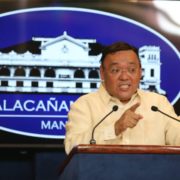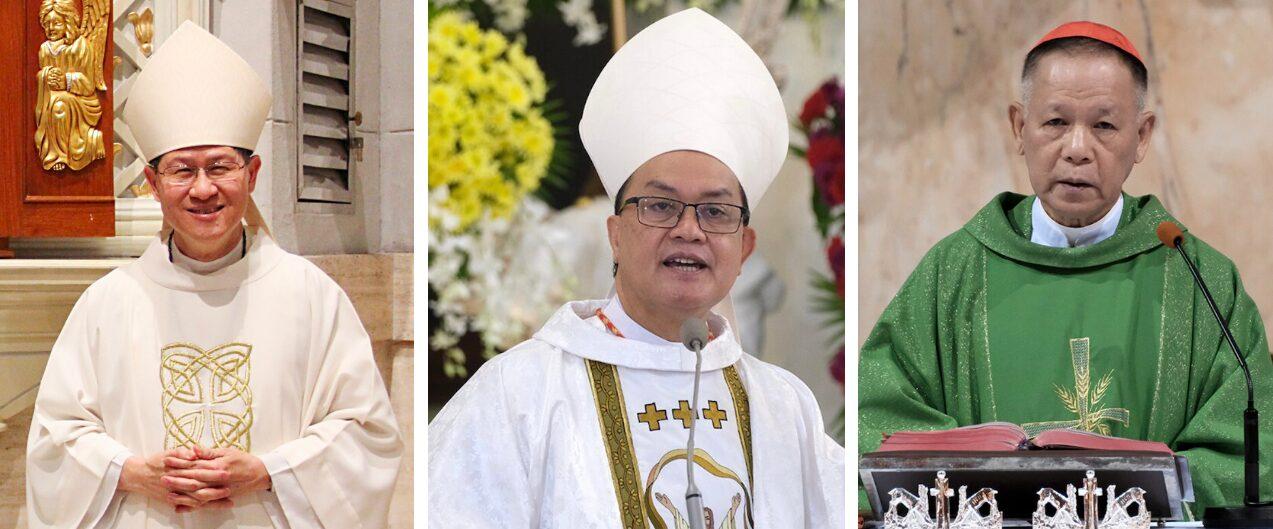European Parliament insists PH should follow due process
Malacañang on Friday, April 20, slammed the European Parliament yet again over the latter’s latest resolution urging the Philippine government to stop its anti-illegal drugs campaign that has reportedly claimed about 12,000 lives since mid-2016.
Calling the European Parliament’s latest move a form of “interference” into the Philippines’ affairs, Malacañang asked the body to be more careful in issuing resolutions.
“We of course find it unfortunate that members of the European Parliament once again interfered with the affairs of the Philippine state, rehashing issues and baseless claims that have been explained adequately by the Philippine government in several official statements,” Palace Spokesperson Harry Roque Jr. said.
In a resolution adopted Thursday, April 19, members of the European Parliament called on the Philippine government to “put an immediate end to the extrajudicial killings in the pretext of a ‘war on drugs.’”
The EU Parliament “strongly condemns the high number of extrajudicial killings,” citing death toll supposedly reaching about 12,000.
The body further “expresse[d] grave concern” over reports that the Philippine National Police (PNP) “is falsifying evidence to justify extrajudicial killings” associated with the drug war that allegedly targets predominantly lower-class Filipinos.
The parliament then called “on the authorities of the Philippines to immediately carry out impartial and meaningful investigations into these extrajudicial killings and to prosecute and bring all perpetrators to justice.”
Malacañang, however, maintained that the Philippine government does not tolerate unlawful deaths.
“Impunity does not have a place in our society and we continue to follow due process and hold officers accountable for their actions,” Roque stressed.
He went on to say, “Hindi po natin kinukusinti ang mga patayan. Ang ating mga institusyon ay gumagalaw po para bigyan ng implementasyon ang ating batas laban sa patayan (We do not tolerate these deaths. Our institutions are working to implement the laws against killings).”
The Palace official also questioned where the European Parliament obtained the death numbers.
“Ang sabi po nila, 12,000 na raw po ang namatay (They said 12,000 died). Nasaan po iyong mga bangkay, at nasaan po iyong mga demanda ng mga 12,000 victims (Where are the bodies, and where are the charges filed for these deaths)?” Roque asked.
While the Parliament pegged the number at 12,000, data released by the Philippine government only states a little over 4,000 “drug personalities” killed in police operations from July 1, 2016 to March 20, 2018.
“Kakaunti lang po ang mga alam naming demanda tungkol sa mga patayan na ito, and we, of course, challenge them—saan po ang mga datos, saan ang ebidensya na 12,000 ang namatay na (We only know of a few of these cases. And of course, we challenge them–where are the data and evidence which show that there 12,000 deaths)?” Roque added.
Foreign Secretary Alan Peter Cayetano on Thursday blasted the European Parliament for for crossing “a red line when it called for unwarranted actions against the Philippines.”
“This resolution that the European Parliament just adopted is based on biased, incomplete, and even wrong information, and does not reflect the true situation on the ground,” Cayetano said.
He added, “In case the members of the European Parliament are not aware of it, may we remind them that their recommended actions already constitute interference in the affairs of a sovereign state.”
EU official deported
The European lawmakers also called on the administration “to stop banning the entry into the country of persons who are perceived as critics of President Duterte’s policies.”
Earlier this week, a European politician was detained and immediately deported for allegedly engaging in a “partisan political activity.”
Giacomo Filibeck, the deputy secretary general of the Party of European Socialist (PES) and a native of Italy, was detained at the Cebu International Airport and immediately deported last Sunday, April 15.
Filibeck was supposed to join the Akbayan Party-list Congress as a guest of honor on Monday.
The Bureau of Immigrations, however, ordered his deportation because he supposedly “violated the conditions of his stay when he came to the Philippines last year.”
Filibeck was part of a human rights delegation that visited Manila in October 2017 that denounced the killings under Philippine President Rodrigo Duterte’s campaign against illegal drugs.
Akbayan, a sister party of PES, called Filibeck’s deportation a “deplorable act of silencing the strong voices for human rights.”
The party also urged the House of Representatives to probe the PES official’s deportation, adding that the “unfortunate incident only shows how paranoid this government is in keeping the rest of the world blind from the damage President Duterte has done to our country.”
PES President Sergei Stanishev, for its part, condemned how Filibeck was “treated as a criminal on the orders of the government and forcible deported from the country.”
“Clearly, the president intends to silence criticism of his deadly policies both at home and abroad,” Stanishev said.
He continued: “As a united political family, we refuse to be silenced. We will continue to express our solidarity with the democratic opposition to Mr. Duterte’s increasingly authoritarian rule in the Philippines.”






